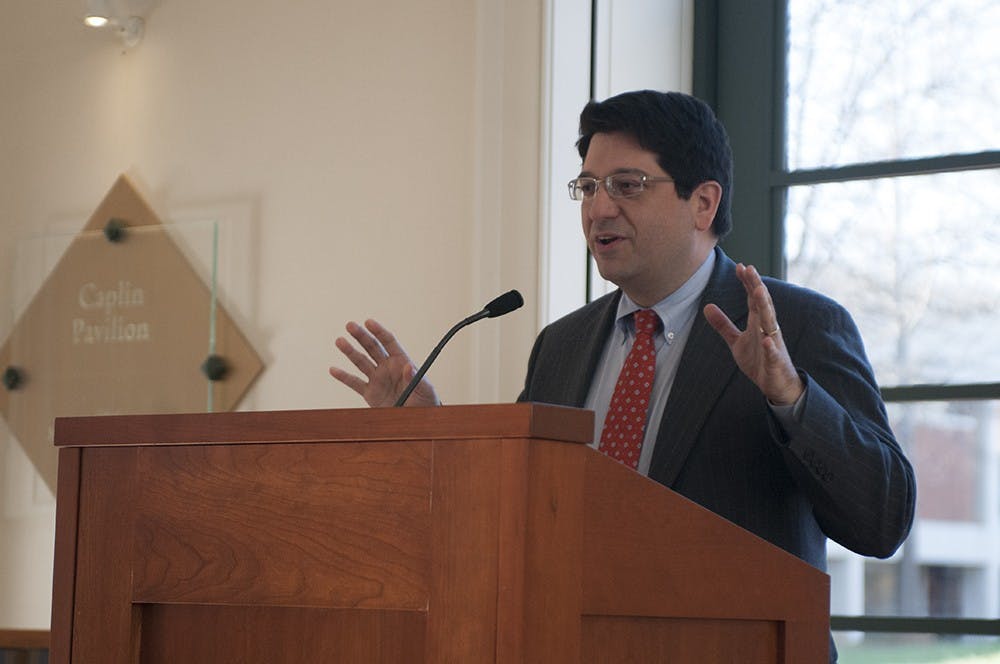The Law school hosted Anthony Picarello, general council for the U.S. Conference of Bishops, for a talk about how the Catholic Church defines religious freedom and to debunk some of the misperceptions surrounding religious freedom in American society.
The event was sponsored by the St. Thomas More society, a community of Catholic lawyers at the Law School which strives to develop higher ethical principles in its members in the model of its saintly namesake.
Picarello, a Law school alumnus, received his undergraduate degree from Harvard and has a masters in religious studies from the University of Chicago Divinity School. In his lecture, titled “What is Religious Freedom,” he explained how the Catholic Church approaches the concept of religious freedom and attempted to make a distinction between other interpretations that have been falsely attributed to the Church.
A significant portion of his lecture focused on a piece of doctrine called the Dignitatis Humanae, which since being promulgated by Pope Paul VI in 1965, has been considered the Catholic Church’s official manifesto on the meaning of religious freedom as it pertains to civil society.
For the Catholic Church, exercising religious freedom is as much a fundamental individual right as it is a civil right. Picarello said when a government or private actors prevent people from associating on religious grounds, they are guilty of what he called “coercion against conscience.”
Religious freedom must also fall within due limits, Picarello said, meaning people have a moral obligation to respect the religious right of others so long as it does not disrupt “just public order.”
Picarello went on to emphasize what religious freedom was not by debunking some myths about the Church’s objection to abortion, contraceptives and same sex marriage. Much of the talk centered on recent court cases and how religious freedom is framed in public political discourse.
Picarello stressed the Church does not use the term religious freedom as a politically correct way to deflect from addressing the real issues at stake.
“Religious freedom is not a repackaging, or another form of tact in messaging that the Church is using to cover up issues of abortion, contraception and same-sex marriage,” Picarello said.
Picarello also said religious freedom is not about hating a certain class, race or sex. He stressed the issue of religious freedom transcends the partisan divide, citing the 1993 Religious Freedom Restoration Act sponsored by Senator Chuck Schumer (D-NY) and signed into law by President Clinton.
Picarello said at its simplest, religious freedom was not a license to discriminate, but rather a means of preventing beliefs contrary to someone’s faith from being imposed on them.
“People see religious liberty in the context of the cases of the day which paints a bad picture of the concept,” Picarello said, “People need to step back and take a broader gauge, more abstract approach in their understanding of religious freedom.”







